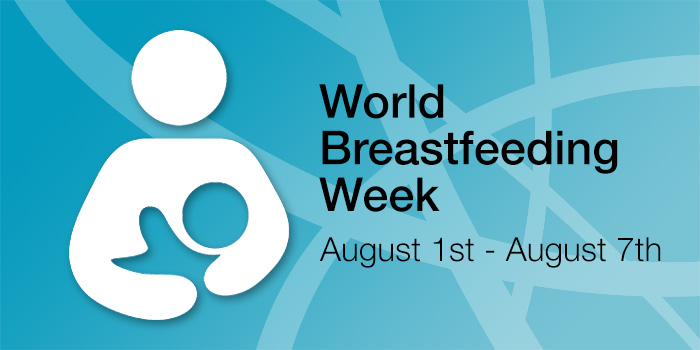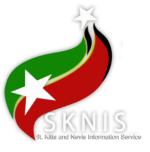Port of Spain, Trinidad and Tobago. 3 August 2022. Exclusive breastfeeding for 6 months benefits the infant, mother, family, community, country and environment,” states Dr. Joy St. John, Executive Director at the Caribbean Public Health Agency (CARPHA). “Therefore, breastfeeding is recognised as an effective strategy in achieving regional and global goals on health, nutrition, food security, economic growth and environmental sustainability.
The World Health Organization (WHO) and United Nations Children’s Fund (UNICEF) recommend that breastfeeding be initiated within 1 hour of birth, continued exclusively for the first 6 months of life, and that nutritionally-adequate and safe complementary (solid) foods be introduced at 6 months together with continued breastfeeding up to 2 years of age or beyond.
Early initiation of breastfeeding is critical to newborn survival, reducing their risk of morbidity and mortality. Breastmilk provides optimal nutrition for infants for their physical and mental growth and development, along with antibodies to prevent and mitigate childhood illnesses.
Breastfeeding reduces the risk of over-nutrition (overweight and obesity) and non-communicable diseases (NCDs) for both mother and child. Infants that are breastfed longer, have 13% lower risk of overweight and obesity and 35% lower risk of type 2 diabetes. Women who breastfeed have reduced risks of postpartum overweight and obesity, 32% lower risk of type 2 diabetes, 37% lower risk of ovarian cancer and 26% lower risk of breast cancer4.
In Latin America and the Caribbean, many infants and young children do not meet the WHO and UNICEF recommendations for breastfeeding and ultimately lose out on its many benefits. Only 54% of infants initiate breastfeeding within 1 hour of birth; 37% breastfeed exclusively for the first 6 months of life which is below the global rate (44%); and between 31%-55% of children continue to receive breastmilk up to 2 years of age.
Breastfeeding, more so when occurring exclusively, allows for healthier mothers and children who can in turn contribute meaningfully to the community and society at large. There is a reduced tax burden on communities and governments to ensure children are properly fed. Additionally, more funding is made available for community and national development. Reports indicate that the total global economic losses of not breastfeeding are estimated to be US$341.3 billion.
Breastfeeding is a naturally renewable resource that is environmentally sustainable as it does not require the use of natural resources (not even water!), provides no waste for accumulation in landfills (no packaging or disposal), and it does not pollute the environment.
Breastfeeding also contributes to infant and household food security. Infants who are breastfed exclusively, require no other source of nutrition and are less likely to get sick thereby lessening the financial burden on the family. This allows for nutritious foods to be bought for other members of the family. This is especially important during times of economic crises, such as those experienced during the COVID-19 pandemic, where many households face unemployment and loss of income. The pandemic has proven to be a global threat to breastfeeding. Two recent studies in Western countries reported a decline in early initiation, exclusive and continued breastfeeding rates due to the pandemic, with one major contributing factor being a loss in support for mothers.
Breastfeeding is particularly effective against infectious diseases because it strengthens the immune system by transferring antibodies from the mother to the child. Mother to child transmission of SARS-CoV-2 through breastmilk has not been found to occur. The WHO and UNICEF recommendations on initiation and continuation of breastfeeding infants and young children also apply to mothers with suspected or confirmed coronavirus disease as the benefits far outweigh any potential risks. Mothers with suspected or confirmed COVID-19 are encouraged to practice respiratory hygiene (wearing a mask when breastfeeding), hand hygiene (frequent hand washing, including before and after touching the baby), and routinely clean and disinfect surfaces. If the mother is too unwell to breastfeed, she can be supported to feed expressed breastmilk or to relactate (re-introduce breastfeeding after a period of cessation).
This year’s theme for World Breastfeeding Week “Step up for Breastfeeding – Educate and Support” is aligned with thematic area 1 of the WBW-Sustainable Development Goals 2030 campaign which highlights the links between breastfeeding and good nutrition, food security and reduction of inequalities. It will focus on strengthening the capacity of actors that have to protect, promote and support breastfeeding across different levels of society.
We all form part of the warm chain of support of breastfeeding – whether we are from or represent governments, health systems, workplaces or communities – and have a shared responsibility to protect, promote and support breastfeeding. Let us all inform, anchor, engage and galvanise action to protect and support breastfeeding. A whole-of-society approach is needed to facilitate the development and implementation of regional breastfeeding policies and creating a breastfeeding-friendly environment.
This is in keeping with the Caribbean Public Health Agency’s (CARPHA) life course approach for the prevention of NCDs of which breastfeeding is a key factor. CARPHA supports breastfeeding as a long-term strategy for a more productive and healthier Region and encourages mothers and families to see breastfeeding as the optimal feeding method for infants.
CARPHA has led training in the WHO/UNICEF 40 Hour Breastfeeding Counselling Course; and training of Health Professionals in the 20-Hour Course for Baby Friendly Hospital Initiative as well as implementation and certification. The Agency has also supported Member States with the development of National Infant and Young Child Feeding Policies, Hospital Breastfeeding Policies and developed guidelines for anyone involved in the care and management of newborns, and pregnant or lactating women suspected of or confirmed to be infected with the COVID-19 virus.
CARPHA calls upon its member states to take a whole of society approach and implement and reinforce the International Code of Marketing of Breast-milk Substitutes and the Ten Steps to Successful Breastfeeding. By protecting and supporting breastfeeding, we are also protecting human rights and taking important steps towards achieving the Sustainable Development Goals, leaving no one behind in the post-pandemic world.



